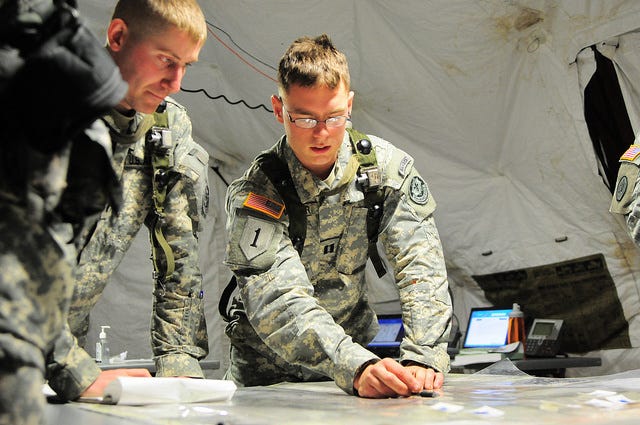 Recently, a West Point Cadet asked me what I, as a Troop Commander, expected from a Platoon Leader. I provided four traits that I believe define successful lieutenants: unquestionable integrity, an aggressively proactive attitude, a willingness to engage in open and candid communication, and a commitment to self-study.
Recently, a West Point Cadet asked me what I, as a Troop Commander, expected from a Platoon Leader. I provided four traits that I believe define successful lieutenants: unquestionable integrity, an aggressively proactive attitude, a willingness to engage in open and candid communication, and a commitment to self-study.
I want to highlight the second trait, maintaining a proactive mindset, which in my mind separates mediocre and outstanding junior leaders. Being proactive, especially in the face of potential obstacles and failure, is a key determinant of one’s level of success.
Lieutenants share four common situations that can lead to failure:
You don’t know how to accomplish a given task.
You know how to accomplish a given task, but (you think that) you can’t.
You know how to accomplish a given task, but choose not to.
You know how to accomplish a given task, but make mistakes or errors that cause you to fail.
For each cause of failure, there is a proactive response that leads to success. Let’s explore each of the reasons for failure and corresponding reactive and proactive responses.
 A UK-based former senior officer in the Pakistan Army has been accused of being a supergrass who sold the secret location of Osama bin Laden to the CIA.
A UK-based former senior officer in the Pakistan Army has been accused of being a supergrass who sold the secret location of Osama bin Laden to the CIA.
















